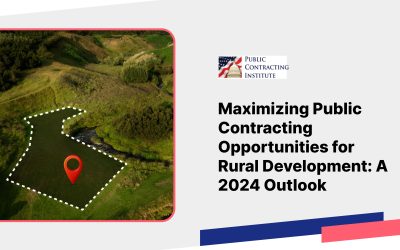By Richard D. Lieberman, Consultant
The Government Accountability Office (“GAO”) recently considered a simplified acquisition for leadership training, issued by the Department of Homeland Security, Immigration and Customs Enforcement (“ICE”), where there was both a question of whether discussions were held, and if held, if they were adequate.
Academy Leadership, LLC, B-419705.2, Sept. 30, 2021. The GAO held that discussions were held, but they were not meaningful (adequate) since they failed to address significant weaknesses or deficiencies in one of the offeror’s technical proposal.
The solicitation called for a best-value tradeoff, with the technical factors significantly more important than price. After an initial protest was filed, the agency took corrective action by agreeing to re-evaluate proposals and make a new selection decision. After re-evaluation and a “down-selection,” the two remaining offerors were as follows:
Academy’s price was $2.9 million but its 3 technical scores were evaluated as only “some confidence.”
Lincoln’s price was $5.0 million and 2 of 3 technical scores were evaluated as “high confidence” with the third technical score being “some confidence.”
The Source Selection official concluded that the benefits offered by Lincoln’s higher rated proposal warranted the 53% price premium over Academy’s proposal. Academy protested that discussions held by ICE were not fair or equitable. During discussions ICE informed Lincoln that “While evaluating your proposal, your pricing was significantly higher than the other proposals. Is this the best offer that you can provide?” At the same time, ICE contacted Academy and stated only “Is the pricing you submitted …the best offer you can provide?” No other comments were provided to Academy. Both offerors were asked for a response.
First, GAO noted that even though an agency is not
required to conduct discussions under Federal Acquisition Regulation (“FAR”) 13.002 simplified acquisitions, ICE clearly held discussions and therefore they were required to be held using fair and equitable competition and consistent with the terms of the solicitation. Therefore, GAO considered the fairness and equity of these discussions. GAO found that the communications to Lincoln held the ordinary indicia of discussions by conveying information that was tailored to Lincoln’s proposal, bargaining and providing the company with an opportunity to revise its proposal. The discussions with Lincoln clearly conveyed a need for the company to reduce its price—the only significant weakness in its proposal.
In its discussions with Academy, which had a much lower price than Lincoln, ICE never identified any significant deficiencies or weaknesses in its proposal, even though the Agency had found four of them: (1) failure to address certain parts of the solicitation; (2) failure to explain how Academy would develop its curriculum; (3) failure to address certain core competencies; and (4) management deficiencies. These true concerns of the agencies had come to light in the initial ICE evaluation (before it took corrective action) but still remained post-corrective action. The only difference was that instead of labeling these flaws as “significant weaknesses” or “deficiencies” the agency relabeled them as aspects that “lowered the expectation of success.” Instead of asking Academy to address these weaknesses and deficiencies, ICE had merely asked Academy for a price reduction. This was not a meaningful discussion, and the protest was sustained. GAO recommended that ICE conduct appropriate discussions and make a new source selection decision.
Takeaway. Discussions are discussions, whether in a FAR Part 13 or Part 15 procurement, and must be fair, equitable and meaningful. Deficiencies and significant weaknesses must be brought to the attention of each offeror. Finally, relabeling deficiencies and weaknesses as something else does not magically change them into acceptable parts of a proposal.
For other helpful suggestions on government contracting, visit:
Richard D. Lieberman’s FAR Consulting & Training at https://www.richarddlieberman.com/, and Mistakes in Government Contracting at https://richarddlieberman.wixsite.com/mistakes.
Other Articles on Discussions
DISCUSSIONS WERE NOT MEANINGFUL
DISCUSSIONS-HIGH PRICE OR UNREASONABLE HIGH PRICE
Offerors – Don’t Introduce New Weaknesses In Proposals After Discussions
IMPROPER DISCUSSIONS: AGENCY TREATED NEUTRAL PAST PERFORMANCE AS “INCREASED RISK” WITHOUT MENTIONING IT IN DISCUSSIONS
IMPROPER AGENCY DISCUSSIONS AND MIS-EVALUATION OF PAST PERFORMANCE
COMPETITOR’S FILING OF A PROTEST DOES NOT CONSTITUTE DISCUSSIONS
DISCUSSIONS MUST ADDRESS DEFICIENCIES AND SIGNIFICANT WEAKNESSES OF ALL OFFERORS
ADVISING OFFEROR 3 TIMES IN DISCUSSIONS THAT ITS PRICE EXCEEDED THE FUNDS AVAILABLE IS NOT MISLEADING

